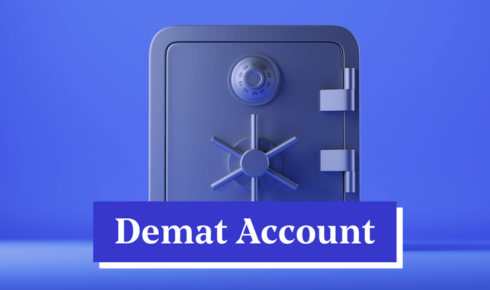- Independence’s meaning could be a little more obvious.
Monetary freedom implies having sufficient pay from your ventures or uninvolved sources to cover your everyday costs, permitting you to live without depending on a conventional work or dynamic work.
- What amount of time does it require to accomplish monetary freedom?
The course of events changes relying upon your pay, reserve funds rate, way of life, and speculation returns. Certain individuals accomplish it in 10-20 years, while others might take more time.
- What is the FIRE development?
FIRE represents Monetary Freedom, Resign Early. It’s a development where people expect to save and put forcefully to resign sooner than the customary retirement age.
- How much cash do I have to accomplish monetary freedom?
The sum fluctuates relying upon your ideal way of life, however many go for the gold “withdrawal rate” of 4%. This implies you would require multiple times your yearly costs in reserve funds and ventures to easily resign.
- How would I work out the amount I want to resign?
To work out the amount you really want to resign, duplicate your ideal yearly costs by 25. For instance, in the event that you really want $40,000 every year, you would require $1 million saved.
- What is the 4% rule?
The 4% decide recommends that you can securely pull out 4% of your reserve funds every year in retirement without reaching a dead end financially. It expects you have an enhanced venture portfolio with consistent returns.
- What steps would it be advisable for me to take to begin getting ready for monetary autonomy?
Begin by following your spending, making a financial plan, wiping out exorbitant premium obligation, saving and contributing reliably, and expanding your pay through second jobs or professional success.
- How significant is putting something aside for monetary freedom?
Saving is basic to building the capital expected to accomplish monetary freedom. A higher investment funds rate speeds up your way to independence from the rat race.
- What’s the best investment funds rate for monetary freedom?
Planning to save half or a greater amount of your pay is great for arriving at monetary freedom quicker. Nonetheless, any expansion in your reserve funds rate will help.
- How might I build my reserve funds rate?
You can expand your investment funds rate by decreasing pointless costs, living underneath your means, staying away from way of life expansion, and tracking down ways of helping your pay.
- Which job does putting play in monetary freedom?
Contributing is fundamental for developing your riches. It permits your cash to work for you, producing returns that outperform expansion and assist you with arriving at monetary freedom quicker.
- Would it be a good idea for me to focus on taking care of obligation or contributing for monetary freedom?
It’s by and large smart to take care of exorbitant premium obligation first, as it can keep you from acquiring profits from your speculations. A short time later, center around saving and contributing forcefully for monetary freedom.
- What kinds of speculations would it be a good idea for me to zero in on for monetary freedom?
An enhanced arrangement of stocks, securities, land, and perhaps different resources like record assets or profit paying stocks is normally suggested. Long haul ventures with compound development potential are vital.
- How might I contribute with restricted pay?
Begin little by adding to retirement accounts (like 401(k)s or IRAs), putting resources into minimal expense record assets, and utilizing applications that permit fragmentary offers. Consistency is a higher priority than the sum you contribute.
- What is an automated source of income, and how might I make one?
Recurring, automated revenue is cash acquired with practically no work after the underlying arrangement. You can make automated revenue through interests in profit stocks, land, or making computerized items like digital books or courses.
- Is it critical to have a rainy day account while getting ready for monetary autonomy?
Indeed, having a secret stash is fundamental for cover surprising costs without upsetting your investment funds and speculations for monetary freedom.
- What amount would it be advisable for me to have in my just-in-case account?
A just-in-case account ought to in a perfect world cover 3-6 months of everyday costs, contingent upon your work strength and individual solace level.
- What is the job of planning in getting ready for monetary freedom?
Planning assists you with following your spending, recognize regions where you can scale back, and guarantee that you are saving and contributing to the point of meeting your monetary autonomy objectives.
- Would it be advisable for me to zero in on decreasing my costs or expanding my pay to accomplish monetary freedom?
A mix of both is great. Lessening costs builds your reserve funds rate, while expanding pay gives more cash to save and contribute.
- How might I live beneath my means while planning for monetary autonomy?
You can live beneath your means by staying away from way of life expansion, diminishing optional spending, cutting pointless costs, and zeroing in on what really enhances your life.
- What are a few normal mix-ups individuals make while attempting to accomplish monetary freedom?
Normal slip-ups incorporate not saving enough, not contributing for long haul development, misjudging retirement costs, and neglecting to make arrangements for medical services costs.
- Would it be advisable for me to expect to take care of my home loan prior to chasing after monetary freedom?
Taking care of your home loan early can lessen your costs in retirement, however it’s not generally essential on the off chance that you have a low-premium home loan and can bring in better returns by putting away the cash all things being equal.
- How do I have any idea about when I’ve arrived at monetary autonomy?
You’ve arrived at monetary freedom when the automated revenue from your ventures can cover your everyday costs, and you never again need to depend on a customary task to meet monetary objectives.
- What is the significance of expense advantaged accounts in accomplishing monetary freedom?
Charge advantaged accounts like 401(k)s, IRAs, and HSAs assist you with saving money on charges, permitting a greater amount of your cash to develop. These records ought to be a focal piece of your monetary methodology.
- What are a few elective speculations for monetary freedom?
Notwithstanding customary ventures like stocks and bonds, land, distributed loaning, and putting resources into organizations or new companies can be choices to enhance your portfolio.
- How might I adjust appreciating life now and getting ready for monetary autonomy?
You can figure out some kind of harmony by planning for both happiness and future objectives. Focus on significant encounters and spending while at the same time guaranteeing that you’re actually saving and contributing reliably.
- How would I deal with market slumps while planning for monetary freedom?
Remain mentally collected and zeroed in on your drawn out objectives. Market slumps are transitory, and adhering to a differentiated, long haul venture system will help you recuperate and keep creating financial stability.
- Would it be advisable for me to depend on one type of revenue while getting ready for monetary autonomy?
It’s smart to expand your pay sources to lessen risk. Side gigs, speculations, and other revenue streams can enhance your fundamental work and assist you with arriving at monetary freedom quicker.
- Which job does expansion play in monetary freedom?
Expansion dissolves buying control after some time, so it’s critical to put resources into resources that give returns over the pace of expansion, guaranteeing your cash develops adequately to help your future necessities.
- How might I change my monetary freedom plan as I progress in years?
As you age, you might need to change your speculation methodology to turn out to be more moderate and spotlight on saving abundance as opposed to forcefully developing it. Guarantee your retirement plans are lined up with your changing way of life and objectives.
- What are the best monetary instruments for keeping tabs on my development toward monetary freedom?
Monetary instruments like Mint, YNAB (You Want a Financial plan), Individual Capital, and others can assist you with following spending, reserve funds, ventures, and total assets.
- Would it be a good idea for me to consider health care coverage and different advantages in my monetary freedom plan?
Indeed, health care coverage and different advantages are urgent pieces of your arrangement. As you approach monetary autonomy, ensure you consider medical services costs, long haul care, and protection needs.
- How might I ensure my monetary freedom plan is manageable?
Make your arrangement maintainable by routinely evaluating it, adapting to evolving costs, broadening your ventures, and guaranteeing your revenue streams are solid.
- Could I at any point accomplish monetary freedom assuming I have understudy loan obligation?
Indeed, accomplishing monetary autonomy is conceivable even with educational loan obligation. Center around taking care of expensive loans first, while proceeding to save and contribute forcefully.
- How would I resign right on time while keeping an agreeable way of life?
To resign early, center around forcefully saving, effective financial planning, and lessening costs. Guaranteeing a strong arrangement for medical services and other post-retirement needs is likewise fundamental for an agreeable withdrawal from the workforce.
- What is the contrast between monetary autonomy and exiting the workforce?
Monetary autonomy implies having sufficient pay to cover your costs without expecting to work, while exiting the workforce alludes to stopping work before the customary retirement age.
- How might I remain roused while pursuing monetary freedom?
Remain roused by setting clear, feasible objectives, routinely keeping tabs on your development, and recollecting the drawn out advantages of accomplishing monetary autonomy.
- How would I keep way of life expansion from blocking my advancement toward monetary freedom?
Hold your spending within proper limits even as your pay rises, zeroing in on saving and contributing the extra pay as opposed to expanding your costs.
- How would it be advisable for me to respond if I have any desire to resign early yet my occupation gives magnificent advantages?
In the event that withdrawal from the workforce is an objective yet you’re reliant upon benefits, consider how you can imitate those advantages (medical services, protection) in retirement or fabricate elective methodologies, like temporary work or second jobs.
- Might I at any point accomplish monetary freedom without totally resigning from work?
Indeed










Leave a Reply